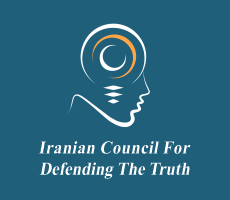Both Tehran and Washington have asked each other to take political decisions to break the impasse to save the nuclear deal. Although it is claimed that the sides have somehow softened their stances that they have finally agreed to resume talks after a months-long pause, but in my view, there doesn’t seem to be any significant movement. Both sides have strong incentives to conclude an agreement, so why they haven’t is perplexing. My guess is that Iran wants to show its prowess in the process, getting concessions the U.S. does not want to give. In Washington, agreeing to the demand for sanctions relief for the IRGC would be seen as weakness, which is politically damaging. So, the impasse.
As described above, when we want to talk about the main obstacles in reviving the JCPOA, it should be said more broadly, there is a clash of national narratives. America’s is expansionist, a violent and resource seeking expansionism. Iran is deeply suspicious of foreign states meddling in its affairs. These long-held beliefs have set up a vicious encounter.
It is argued that Trump put the IRGC, a branch of the Iranian military, on the FTO list to make a JCPOA revival difficult. However, this is the controversial piece for Biden. The IRGC has murdered many U.S. soldiers and marines in Iraq. It’s difficult for the president to retract the designation now. It should have been done at the beginning of his presidency, as indeed the entire agreement should have been revived then as well.
Under such fragile circumstances threatening any possible agreement, it’s difficult to say how constructive role other parties, especially Europe can play. The Europeans tend to follow America’s lead, as they have since 1945. The U.S. has more leverage through its use of sanctions. The E3—UK, France, and Germany—have played a helpful diplomatic role since 2003. But they can’t force a breakthrough.
When JCPOA was signed in 2015, it became apparent very quickly that the number and complexity of sanctions would delay implementation of relief. Business firms around the world viewed this warily and were reluctant to enter into contracts with Iran. And not all sanctions were scheduled for relief in JCPOA. It’s been a murky area of dispute.
I think a failure to fix the JCPOA would be a great gift to Trump and other Iran hawks. It’s what they’ve wanted all along. As it happens, a number of senior military men in Israel want JCPOA revived. There’s no similar right-wing support for JCPOA in the United States. There is always a premium placed on “toughness” when faced with a difficult state. That and the deep influence of the Israel Lobby have led some senators astray. So, even some senators in the Democratic Party oppose the restoration of the JCPOA.

